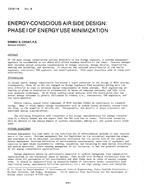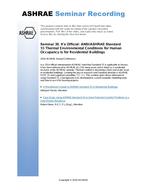We analyze the impacts of errors in estimating input parameters while calculating the thermal load of a building. The building is considered to have energy losses/gains due to: internal heat sources (appliances, occupancy, and lighting); thermal conductivity of the building envelope surfaces; size of the envelope surfaces; and weather conditions. Energy Plus is selected as the software to calculate the thermal load. The error analysis importance is to identify what inputs to the model may cause high errors at the output. More efforts can then be devoted to improve the accuracy of these high-error input parameters, while those parameters which do not have a significant influence can simply be approximated. The building selected for this analysis is at Palo Alto, CA, USA. The site is equipped with a large number of sensors to facilitate comparison to model results. Results indicate the thermal load in this building is largely influenced by the internal heat sources, specifically IT equipment, with a linear correlation relative to accuracy of the inputs. Error on weather conditions is the second most significant error. From the selected group of variables, the size of the walls has the least effect on the thermal load error deviation.
Citation: ASHRAE Papers CD: 2014 ASHRAE Annual Conference, Seattle, WA
Product Details
- Published:
- 2014
- Number of Pages:
- 8
- File Size:
- 1 file , 2.2 MB
- Product Code(s):
- D-SE-14-C075


